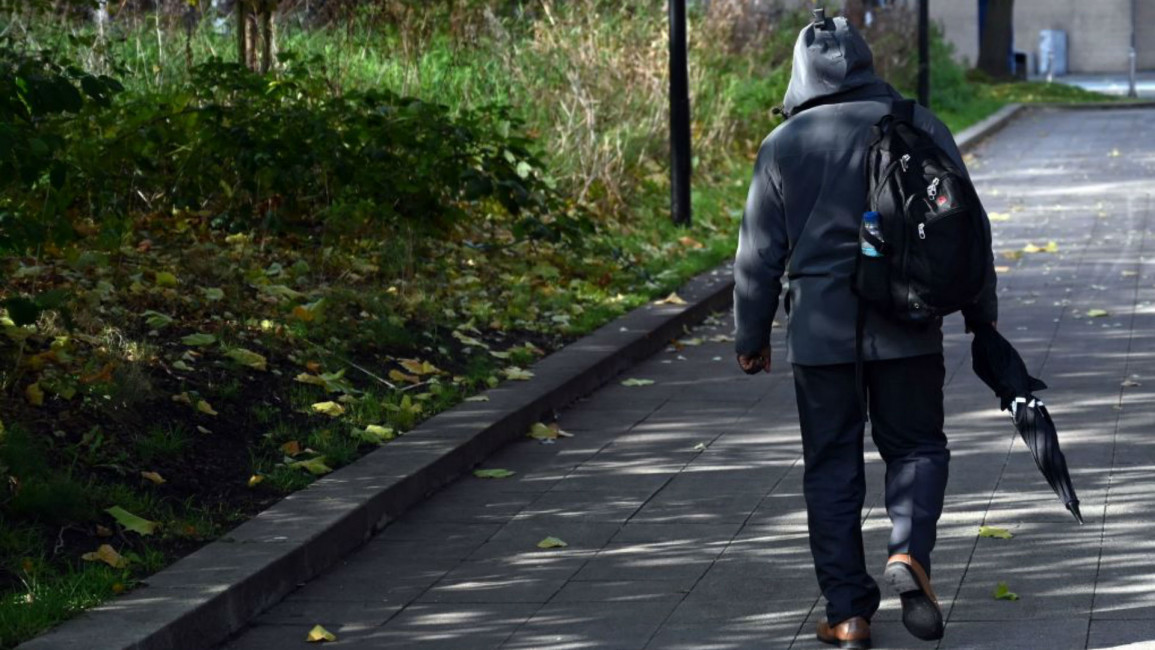
Coronavirus forced us to imagine a world without detention centres. They should remain shut forever
In many ways, it couldn't have come at a better time given that the Home Office has recently reopened its xenophobic doors and is forcing migrants to resume regularly reporting to them. While it has felt like great strides were made to release hundreds of detainees during the pandemic - and it certainly was an important achievement - we should be under no illusion that the fight is over.
Around 1,000 detainees were released during the pandemic as infection rates were rising. Contrary to the narrative that has been peddled by the Tory government, this did not lead to chaos, or unimaginable levels of crime and violence.
In most cases it has meant that for at least a few weeks, those migrants did not feel criminalised for simply being migrants. Many have been able to reunite with families, and despite the difficulty of being left with little support in terms of food and accommodation, being "freed" is a much better alternative to being imprisoned in detention centres, which exposed many to infection, mental health problems, and sexual violence. Some even told the Guardian that they wish for a prolonged lockdown so that they do not have to face the violence of Home Office policies any time soon.
Alas, it is now back to business for the hostile environment.
Soon enough, detention centres will be re-filled and deportations will begin again. It was never really a question of if, but rather, when.
 |
Contrary to the narrative that has been peddled by the Tory government, this did not lead to chaos, or unimaginable levels of crime and violence |  |
Rachel Harger, from Bindmans LLP, who has represented many individuals fighting for their release from detention, warns that "we cannot afford to be complacent following the release of detainees because as long as the centres exist, the state will always find a way to fill them again. This pandemic has forced us to imagine a world without these oppressive institutions, we have to harness the consciousness built in this time and use moments like refugee week to channel it into action."
Some of the backtracking has literally taken place overnight. The Home Office announced on its website that given the economic hardship that is being experienced by many, that non-EU spouses of UK nationals would not be expected to meet the same income threshold as was set pre-pandemic. Therefore, "couples reliant on spouse visas, who have suffered a loss of income due to coronavirus, will not be disadvantaged" stated the guidelines on 8 June.
By the morning of 9 June, this had been removed, causing much panic for those whose visas are reliant on meeting the minimum income threshold of £18,600 per year, but now find themselves furloughed, or worse, jobless.
Twitter Post
|
It is a painful illustration of the centrality of xenophobia to Tory rule that, while the UK is far from being in the clear over the spread of infections, deaths related to Covid-19 continue to grow, and job losses, evictions, and an economic crisis of unprecedented magnitude is on the horizon, the government is still finding the resources to continue with its anti-migrant agenda.
A recent report on the detention of migrants at airports came to some horrifying conclusions. The investigation, which had been commissioned by ministers, monitored two airports and immigration reporting centres in the London area.
Read more: 'No one should be left to die': Fighting to protect refugees in Europe amid Covid-19
The conditions were said to be "adequate" for a short period of time. However, it is "without fresh air or natural light" therefore making it, "unsatisfactory if the stay extends more than a few hours, especially for children." Nearly 2,000 children were held in detention rooms between February 2019 and January 2020, 73 of them kept for over 12 hours in these deplorable conditions.
Already the UK government's hurried attempt to literally fly in thousands of foreign workers to work in British agriculture during the lockdown has been scrubbed from memory. Those who hoped that the "good migrant" narratives pushed around the celebrations of key workers responding to the pandemic would have lasting impacts are about to wake up to pretty bad news.
As we slowly face the wrath of the economic crash intensified by the pandemic, the media, government and other racist pundits will likely heighten their calls for immigration control, harsher borders and deportations. Fascists already took to the streets in central London during international Black Lives Matter demonstrations, and they are likely to grow bigger and stronger in numbers as aggressive austerity measures set in.
The government does not seek to "learn" or move on from the many failures of inadequate detention centres that do not really solve any of its so-called immigration problems.
Detention centres, like prisons or the police, are not institutions that were built for the good of society. They are key tools in state repression, disciplining the most vulnerable elements of the workforce, and therefore the whole labour market by extension.
 |
We should not be fooled into thinking that the pandemic has been a period of reflection during which the government 'came to its senses' |  |
We should therefore not be fooled into thinking that the pandemic has been a period of reflection during which the government "came to its senses".
The news that Munira Mirza will be leading the government commission on racial inequalities, shows exactly why we cannot afford to put our faith in our leaders. Mirza's political career has been a series of attempts to deny - and reinforce - the structures of institutional racism in the UK.
The only way we are going to make a different reality possible - one in which no human being is illegal, nobody is held in cages, and where wealth is redistributed among those who work to create it - is through continued mass mobilisation from below.
The hundreds of thousands opposing racism, police brutality, hostile environment policies, the defunding of our NHS are not just fighting against something, they are demanding a different, and better society. They are fighting for the dismantling of oppressive systems and the extension of basic civil liberties to all.
Malia Bouattia is an activist, a former president of the National Union of Students, and co-founder of the Students not Suspects/Educators not Informants Network.
Follow her on Twitter: @MaliaBouattia
Opinions expressed in this article remain those of the author and do not necessarily represent those of The New Arab, its editorial board or staff.




